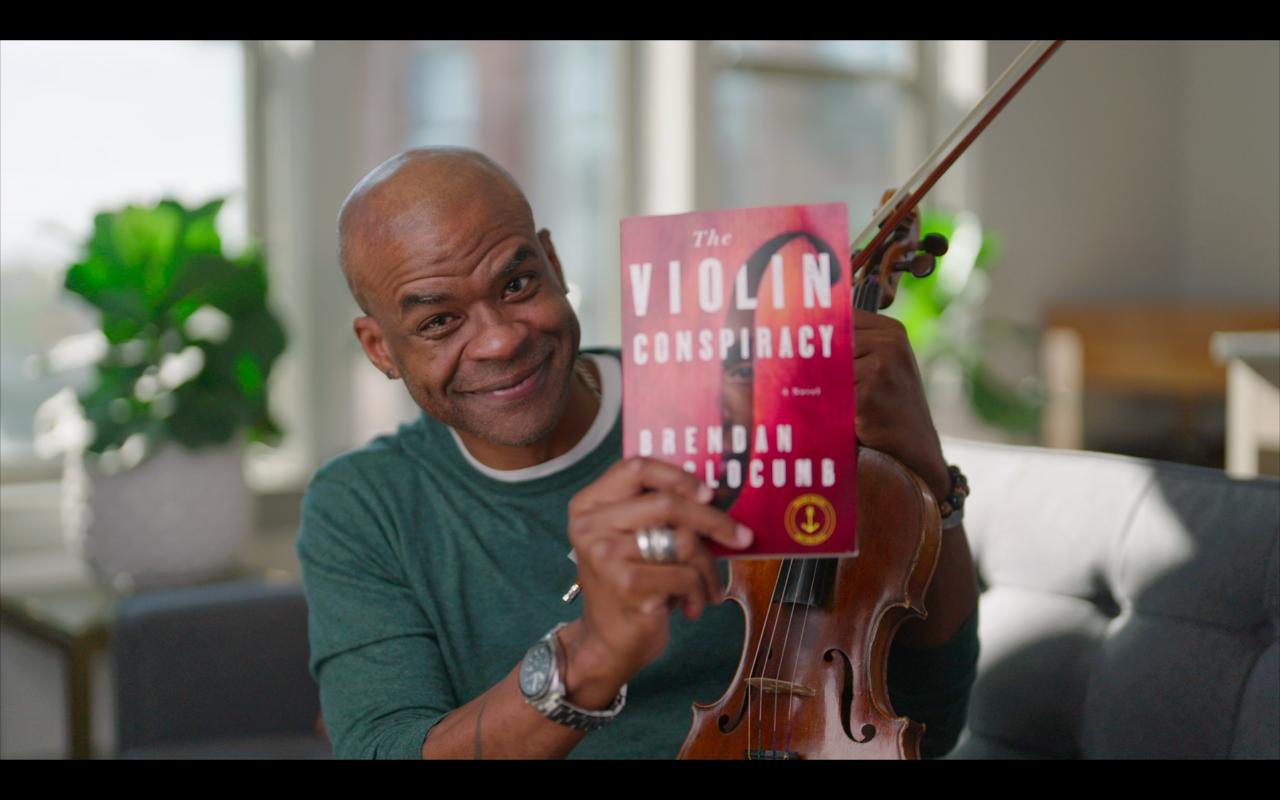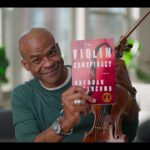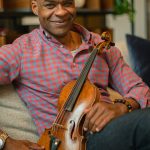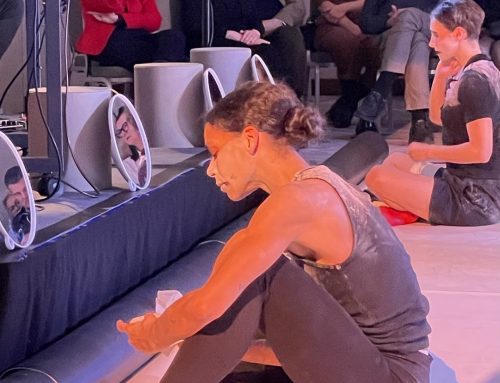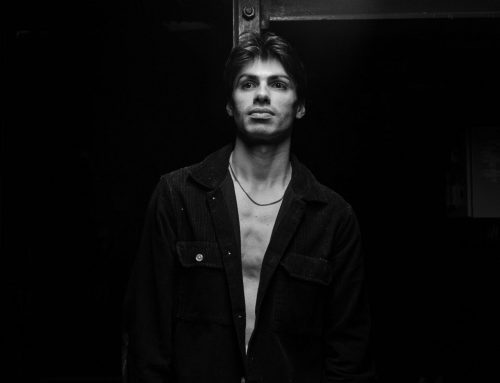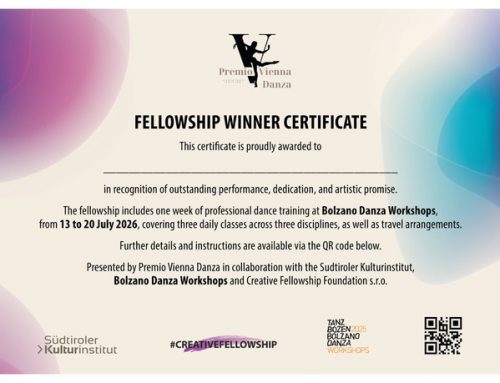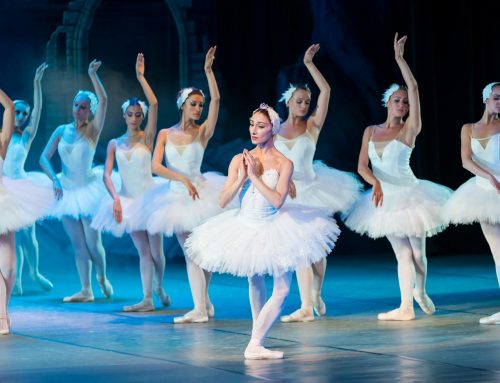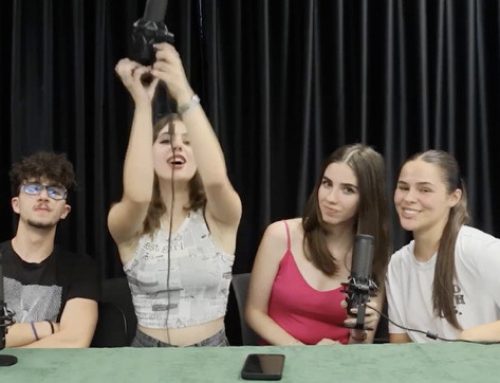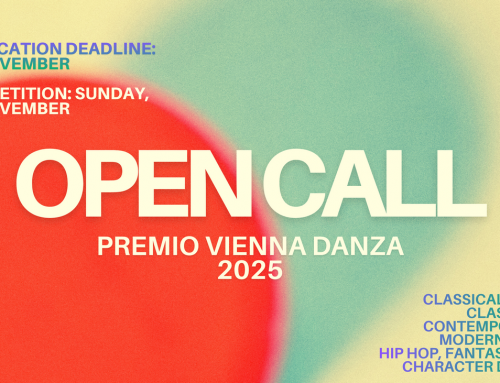Two years ago, we spoke with Brendan Slocumb – novelist, musician, and educator – in Salzburg about his debut novel The Violin Conspiracy. A few weeks ago, during our annual visit to the Salzburg Festival, we wandered into a bookstore and there it was –The Violin Conspiracy on the shelves. The bookseller mentioned that Brendan had just launched a new novel. We took it as a sign to reconnect. And as it turns out, his new book The Dark Maestro resonates with our daily Creative Fellowship experiences even more than his first.
So our talking host Marcus Koch sat down with Brendan to talk about music, resilience, and the stories that keep us inspired.
Marcus Koch (Creative Fellowship): Brendan, thanks for joining me again. Just to introduce myself briefly for those who may be new — I’m Marcus Koch, a host for the Creative Fellowship Foundation, a volunteer community of artists, educators, and philanthropists. Our mission is to support young talents and make the classics more accessible and understandable.
Today I’m joined by Brendan Slocumb — novelist, musician, and educator. Two years ago you spoke with us about your debut The Violin Conspiracy.
Brendan Slocumb: Wow, it’s only been two years?
Marcus: Yeah! And just the other day we learned you released a new novel, The Dark Maestro. That felt like the perfect reason to reconnect.
Brendan: Works for me. That’s a good sign.
Marcus: Definitely. Before we dive into The Dark Maestro, what has life looked like for you over the last two years?
Brendan: As an author, it’s been fantastic. Since The Violin Conspiracy I’ve written two more books, and I’m already a third of the way through my next one. Life-wise, you know — things happen, you roll with the punches — but I’m still here. My books have gotten great press, readers are enjoying them, and I’m really grateful for all the support.
Marcus: That’s wonderful. For those who haven’t read it yet, can you give us a glimpse into The Dark Maestro?
Brendan: Sure. Curtis, the main character, grows up in a rough neighborhood – gangs, drugs, violence. Through public school he discovers the cello, and with encouragement from Larissa, his father’s on-again, off-again girlfriend, he works incredibly hard. After his big debut, the FBI shows up: “Your life is in danger. You’re going into witness protection.”Suddenly he loses everything. He and his family decide the FBI isn’t doing enough, so they take matters into their own hands – in the form of “The Dark Maestro.” What that is… you’ll have to read to find out.
Marcus: That’s a great pitch. Was there a real-life moment that inspired it?
Brendan: It actually started as a completely different concept. But I was really sick at the time, waiting for a kidney transplant. So the story ended up touching on illegal organ harvesting — something I was surrounded by then. Writing became a way of working through it.
Marcus: That’s a tough experience, but I’m glad you’re well now.
Brendan: Thanks. It’s been a full year, and I feel great.
Marcus: In the book, Curtis faces bullying — something we hear a lot about when it comes to kids in the arts. Do you think creative kids are more exposed to this kind of aggression?
Brendan: From my own experience, yes. I was bullied for playing the violin. It’s hard, but you have to remember why you started: because you love it. That passion helps you keep going. Hopefully parents and teachers support you — but sometimes they don’t. And society doesn’t always value the arts the way it should. Once that changes, attitudes toward creative kids will change too.
Marcus: Unfortunately, some families even push kids to give up. What would you say to parents who don’t value their child’s artistic passion?
Brendan: Take the time to understand what it means to your child. You don’t have to love it yourself, but watch the joy it brings them. That’s priceless. When I started violin in the 1980s, my family didn’t get it – a boy, a Black boy, playing violin was almost unheard of. But parents need to see their child’s happiness and support it. That’s real love.
Marcus: That’s great advice. Another tough question: losing your artistic identity doesn’t have to be as dramatic as witness protection – it can happen through injury or hardship. Do you think career transition should be part of artistic training?
Brendan: Every musician dreads the question: What if I can’t play again? I’ve faced it with injuries and illness. But artists are resilient – we’ve learned how to learn, how to adapt. That makes transitions easier for us. During COVID, when I couldn’t play, I turned to writing. Creativity is survival.
Marcus: Speaking of survival – in the novel, Curtis’ cello and his comic books give him strength. Do you see creativity as armor in real life?
Brendan: Absolutely. Creativity is what saves us. If someone told me I could never play violin again, I’d lose it. But like Curtis, having another outlet – for me, writing – keeps you grounded.
Marcus: You also combine music, comics, and justice in this novel. Why that mix?
Brendan: I’ve been a comic book nut since I was 15. Write what you know – and I know comics. Justice came in because the story started with vengeance, but became about fighting for real people. And yes, I still love comics: I even have a 5’11” Spider-Man statue in my kitchen.
Marcus: That’s amazing.
Brendan: Yeah, I check in with him every day. “All right buddy, let’s do this.”
Marcus: The novel itself almost reads like a symphony, with movements and crescendos. Was that intentional?
Brendan: Definitely. I outline my novels like musical scores – overture, first movement, slow second movement, development, finale. That’s how I hear stories.
Marcus: And you even created a playlist.
Brendan: Right. I chose pieces I love, like Kabalevsky’s Cello Concerto – challenging, exciting, not widely known. I wanted readers to discover new music along the way.
Marcus: Without spoilers, what do you hope readers take away from The Dark Maestro?
Brendan: Loyalty and family. How far would you go for the people you love? That’s the question at the heart of the story.
Marcus: One last audience question: will your next book continue the same universe?
Brendan: My first three novels do, but the one I’m writing now is completely new — different story, new characters, still music-centered. I’ve got a dozen ideas, but this one felt urgent.
Marcus: We’ll be first in line. Brendan, thank you so much for talking with us again.
Brendan: My pleasure. Thanks for having me, and happy reading!
To listen to the full version of this talk, please visit our Instagram profile @creative.fellowship

